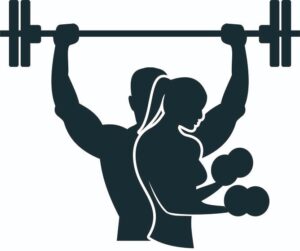food is a essential part of all human life, a food group is a category of foods that share similar nutritional properties or are typically consumed together as part of a balanced diet.
These groups are often used in dietary guidelines to help individuals make healthy food choices. 5 main food groups include:
5 food groups and their function
- Fruits and Vegetables
- Fats
- Protein
- Dairy
- Grains
Fruits and Vegetables:
Fruits and vegetables are vital for general health since they are rich in fibre, antioxidants, vitamins, and minerals. They lower the chance of developing chronic illnesses like cancer and heart disease and strengthen the immune system in addition to fostering good digestion.
Eat a rainbow of produce to make sure you’re getting a wide variety of nutrients. Different coloured fruits and veggies contain different nutrients. For maximum health advantages, try to load up half of your plate with fruits and vegetables at each meal.
Function:
Fruits and vegetables are packed with vitamins (such as vitamin C, vitamin A, and folate) and minerals (such as potassium and magnesium) essential for various bodily functions.
They are rich in antioxidants, which help protect cells from damage caused by free radicals, reducing the risk of chronic diseases like cancer and heart disease.
Fats:
Even though they should only be used in moderation, fats and oils are essential to a balanced diet. Essential fatty acids are provided by healthy fats, which are found in nuts, avocados, olive oil, and fatty fish.
These fatty acids are crucial for hormone regulation, heart health, and brain function. Saturated and trans fats, which are present in processed snacks, fried foods, and fatty meat cuts, should be consumed in moderation because they raise the risk of heart disease.
Function:
Healthy fats provide essential fatty acids such as omega-3 and omega-6, which are crucial for brain function, heart health, and reducing inflammation.
Fats aid in the absorption of fat-soluble vitamins (vitamins A, D, E, and K), ensuring the body can utilize these nutrients effectively.
Protein:
Building and mending tissues, generating hormones and enzymes, and maintaining a strong immune system all depend on protein. Meat, chicken, fish, eggs, dairy products, legumes, nuts, and seeds are examples of foods high in protein.
If you want to make sure your body gets all the critical amino acids it needs, you must incorporate a range of protein sources into your diet. Choose lean protein sources such beans, tofu, skinless chicken, and fish. Cut back on processed meats and high-fat meat portions.
Function:
roteins are the building blocks of muscles, skin, hair, and other body tissues, essential for growth, repair, and maintenance.
Protein helps regulate blood sugar levels by slowing down the absorption of carbohydrates, preventing spikes and crashes in energy levels.
Dairy:
Milk, cheese, and yoghurt are dairy products that are high in calcium, which is necessary for healthy bones and teeth. In addition, they offer vital nutrients including protein, vitamins B12 and D, and others.
There are lots of plant-based milk (soy, almond, or oat) and fortified dairy-free yoghurt alternatives available for people who are lactose intolerant or prefer non-dairy options.
Function:
Dairy products are rich in calcium and vitamin D, essential for maintaining strong bones and teeth and reducing the risk of osteoporosis.
Dairy foods provide high-quality protein, which is important for muscle growth, repair, and overall muscle function.
Grains:
Grains are a fundamental part of a healthy diet and are rich in carbohydrates, which provide the body with energy. Whole grains such as brown rice, quinoa, and whole wheat bread are particularly nutritious as they contain fiber, vitamins, and minerals.
These nutrients support digestion, regulate blood sugar levels, and reduce the risk of chronic diseases such as heart disease and type 2 diabetes. Incorporating a variety of grains into your diet ensures that you receive a range of essential nutrients.
Function:
Grains are rich in carbohydrates, providing the body with a primary source of energy needed for daily activities and bodily functions.
Whole grains are an excellent source of dietary fiber, which aids digestion, promotes satiety, and helps maintain a healthy weight.
Conclusion:
Eating a variety of foods from all food groups is essential for maintaining good health and preventing disease. By including a balance of grains, fruits, vegetables, protein, dairy, and healthy fats in your diet, you can ensure that your body receives all the nutrients it needs to thrive. Remember to practice moderation, portion control, and make mindful food choices to support overall well-being.

